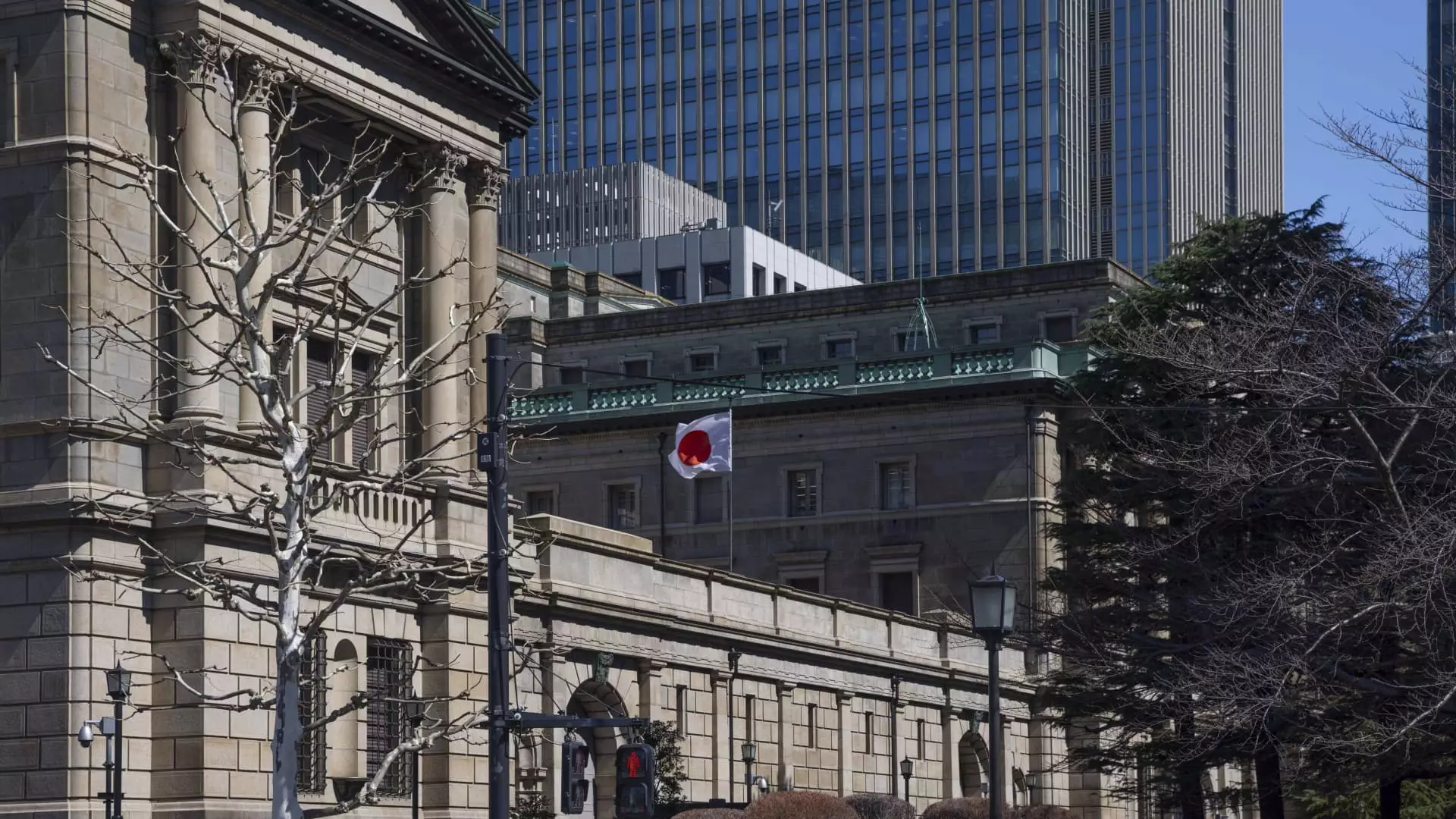The current state of the Japanese yen is far more than a mere financial statistic; it’s an urgent issue that embodies the complexities of global economic interdependence. The weakening of the yen has become an alarming backdrop to rising living costs, casting shadows on households and businesses alike. The Liberal Democratic Party’s policy chief, Itsunori Onodera, has recently articulated a viewpoint that underscores the urgency of strengthening the yen through strategic enhancements to Japan’s industrial competitiveness, suggesting that the time is ripe for introspection and action. However, while Onodera’s pragmatism is commendable, it skirts a deeper and more unsettling truth—that Japan’s economic vulnerabilities cannot be masked by mere currency manipulation.
Trade Tensions and Fiscal Responsibility
As discussions loom between Japan and the United States, the specter of trade negotiations complicates Japan’s economic landscape. The notion of leveraging U.S. Treasury holdings as a bargaining chip is fraught with risks, not just to Japan’s international standing but also to the delicate fabric of the global economy. Onodera’s staunch refusal to consider such tactics reinforces a critical aspect of liberalism: the value of trust and stability in international relations. By rejecting retaliatory measures against tariffs imposed by former President Trump, Japan positions itself as an ally that prioritizes long-term relationships over short-term victories. However, this stance might also be an indication of a lack of assertiveness in a world where nations frequently engage in economic brinkmanship.
Domestic Challenges and Policy Response
The implications of a declining yen extend beyond raw economic figures—they resonate within the hearts and homes of ordinary citizens. The narrative of rising inflation, directly correlated to the yen’s depreciation, paints a grim picture of escalating prices for everyday goods and a diminishing quality of life for many. While Onodera’s rhetoric rightly encourages bolstering local industries, it seems to ignore an underlying reality: that economic resilience cannot be carved out of weak currency alone. Japan must confront its longevity crisis by not only introducing competitive measures but also by investing in innovation and addressing demographic challenges that stymie growth.
To conflate the yen’s decline solely with inflation is to misread the larger economic narrative, which calls for comprehensive reform rather than piecemeal solutions. The slow and arguably grudging approach taken by the Bank of Japan towards interest rate hikes illustrates a wider issue—a hesitancy to embrace accelerated change when it comes to monetary policy. This reluctance stands in stark contrast to the more aggressive fiscal maneuvers observed in other economies, such as the United States.
The Risks of Inaction
As the yen continues to retreat, there exists a tangible risk that Japan could become ensnared in a downward economic spiral. Continuous depreciation can lead to a self-fulfilling prophecy where consumers anticipate rising prices, resulting in decreased spending and, paradoxically, harming the very companies the government seeks to protect. Thus, the government must proactively recalibrate its economic strategy, moving beyond the comfort of gradualism to adopt measures that foster true competitiveness on the global stage.
Another layer of complexity lies in Japan’s historical aversion to a strong currency, fearing its adverse effects on export-driven revenues. Yet, clinging to this outdated perspective ignores the evolving landscape of international commerce, where diversified economies are increasingly recognized for their long-term viability. As a dominant player in technology and manufacturing, Japan should leverage its strengths to fortify its bargaining position, rather than relying on currency depreciation as a crutch.
To forge a resilient economic future, Japan must reconcile its immediate economic pressures with the need for long-term strategic reform. The ongoing debates surrounding the yen present a crucial opportunity for the country to rethink its economic policies. It’s time for decision-makers to cast aside antiquated mentalities and embrace a bold, comprehensive strategy that prioritizes innovation, strategic trade relations, and fiscal responsibility. Only then can Japan hope to lift itself out of the shadows of currency woes and seize its rightful place in an increasingly competitive global economy.

Leave a Reply